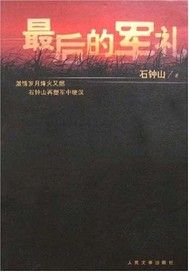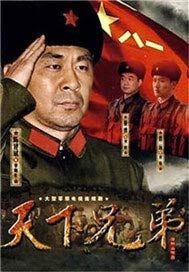当前位置:
纪实传记
> 一个瑜伽行者的自传
> 第七十五章 Founding A Yoga School At Ranchi
第七十五章 Founding A Yoga School At Ranchi
“Why are you averse to organizational work?”
“It is a thankless task,sir,”I answered。“No matter what the leader does or does not,he is criticized。”
“Could you or anyone else achieve God-contact through yoga if a line of generous-hearted masters had not been willing to convey their knowledge to others?”
His counsel moved me deeply。Although I made no outward reply,an adamant resolution arose in my breast:I would share with my fellows,so far as lay in my power,the unshackling truths I had learned at my gurus feet。
“Remember,”he had said slowly,“that he who discards his worldly duties can justify himself only by assuming some kind of responsibility toward a much larger family。”
I determined to found a school where young boys could develop to the full stature of manhood。My frst step in that direction was made with seven children at Dihika,a small country site in Bengal。
A year later,in 191,through the generosity of Sir Manindra Chandra Nundy,the Maharaja of Kasimbazar,I was able to transfer my fast-growing group to Ranchi。This town in Bihar,about two hundred miles from Calcutta,is blessed with one of the most healthful climates in India。The Kasimbazar Palace at Ranchi was transformed into the headquarters for the new school,which I called Brahmacharya Vidyalaya in accordance with the educational ideals of the rishis。
At Ranchi I organized an educational program for both grammar and high school grades。It included agricultural,industrial,commercial,and academic subjects。The students were also taught yoga concentration and meditation,and a unique system of physical development,“Yogoda,”whose principles I had discovered in 1916.
I taught the Ranchi students my simple“Yogoda”techniques by which the life force,centred in mans medulla oblongata,can be consciously and instantly recharged from the unlimited supply of cosmic energy。
The boys responded wonderfully to this training,developing extraordinary ability toshift the life energy from one part of the body to another part,and to sit in perfect poise in diffcult body postures。They performed feats of strength and endurance which many powerful adults could not equal。My youngest brother,Bishnu Charan Ghosh,joined the Ranchi school;he later became a leading physical culturist in Bengal。He and one of his students traveled to Europe and America,giving exhibitions of strength and skill which amazed the university savants,including those at Columbia University in New York。
At the end of the first year at Ranchi,applications for admission reached two thousand。But the school,which at that time was solely residential,could accommodate only about one hundred。Instruction for day students was soon added。
In the Vidyalaya I had to play father-mother to the little children,and to cope with many organizational diffculties。
One day my father arrived in Ranchi to bestow a paternal blessing。
“Son,”he said,“I am now reconciled to your choice in life。”
With a large fruit orchard and twenty-fve fertile acres at our disposal,the students,teachers,and myself enjoyed many happy hours of outdoor labor in these ideal surroundings。We had many pets,including a young deer who was fairly idolized by the children。I too loved the fawn so much that I allowed it to sleep in my room。At the light of dawn,the little creature would toddle over to my bed for a morning caress。
One day I fed the pet earlier than usual,as I had to attend to some business in the town of Ranchi。Although I cautioned the boys not to feed the fawn until my return,one of them was disobedient,and gave the baby deer a large quantity of milk。When I came back in the evening,sad news greeted me:“The little fawn is nearly dead,through over feeding。”
In tears,I placed the apparently lifeless pet on my lap。I prayed piteously to God to spare its life。Hours later,the small creature opened its eyes,stood up,and walked feebly。The whole school shouted for joy。
One day,I stayed up with the fawn until two oclock,when I fell asleep。The deer appeared in a dream,and spoke to me:
“You are holding me back。Please let me go;let me go!”
“All right,”I answered in the dream。
I awoke immediately,and cried out,“Boys,the deer is dying!”The children rushed to my side。
I ran to the corner of the room where I had placed the pet。It made a last effort to rise,stumbled toward me,then dropped at my feet,dead。
According to the mass karma which guides and regulates the destinies of animals,the deers life was over,and it was ready to progress to a higher form。
The Ranchi school grew from small and simple beginnings to an institution now well-known in India。Many departments of the school are supported by voluntary contributions from those who rejoice in perpetuating the educational ideals of the rishis。Under the general name of Yogoda Sat-Sanga,fourishing branch schools have been established at Midnapore,Lakshmanpur,and Puri。
The Ranchi headquarters maintains a Medical Department where medicines and the services of doctors are supplied freely to the poor of the locality。The number treated has averaged more than 1,000 persons a year。The Vidyalaya has made its mark,too,in Indian competitive sports,and in the scholastic feld,where many Ranchi alumni have distinguished themselves in later university life。
The school,now in its twenty-eighth year and the center of many activities,has been honored by visits of eminent men from the East and the West。One of the earliest great fgures to inspect the Vidyalaya in its frst year was Swami Pranabananda,the Benares“saint with two bodies。”As the great master viewed the picturesque outdoor classes,held under the trees,and saw in the evening that young boys were sitting motionless for hours in yoga meditation,he was profoundly moved。
“Joy comes to my heart,”he said,“to see that Lahiri Mahasaya‘s ideals for the proper training of youth are being carried on in this institution。My guru’s blessings be on it。”
Sometime after Swami Pranabananda had visited Ranchi,I accompanied my father to the Calcutta house where the yogi was temporarily staying。Pranabanandas prediction,made to me so many years before,came rushing to my mind:“I shall see you,with your father,later on。”
As Father entered the swamis room,the great yogi rose from his seat and embraced my parent with loving respect。
“Bhagabati,”he said,“what are you doing about yourself?Dont you see your son racing to the Infnite?”I blushed to hear his praise before my father。The swami went on,“You recall how often our blessed guru used to say:‘Banat,banat,ban jai。’So keep up Kriya Yoga ceaselessly,and reach the divine portals quickly。”
The body of Pranabananda,which had appeared so well and strong during my amazing frst visit to him in Benares,now showed defnite aging,though his posture was still admirably erect。
“Swamiji,”I inquired,looking straight into his eyes,“please tell me the truth:Arentyou feeling the advance of age?As the body is weakening,are your perceptions of God suffering any diminution?”
He smiled angelically。“The Beloved is more than ever with me now。”His complete conviction overwhelmed my mind and soul。He went on,“I am still enjoying the two pensions-one from Bhagabati here,and one from above。”Pointing his fnger heavenward,the saint fell into an ecstasy,his face lit with a divine glow-an ample answer to my question。
Noticing that Pranabanandas room contained many plants and packages of seed,I asked their purpose。
“I have left Benares permanently,”he said,“and am now on my way to the Himalayas。There I shall open an ashram for my disciples。These seeds will produce spinach and a few other vegetables。My dear ones will live simply,spending their time in blissful God-union。Nothing else is necessary。”
Father asked his brother disciple when he would return to Calcutta。
“Never again,”the saint replied。“This year is the one in which Lahiri Mahasaya told me I would leave my beloved Benares forever and go to the Himalayas,there to throw off my mortal frame。”My eyes flled with tears at his words,but the swami smiled tranquilly。
Months later I met an old friend,Sanandan,who was one of Pranabanandas close disciples。
“My adorable guru is gone,”he told me,amidst sobs。“He established a hermitage near Rishikesh,he proposed one day to feed a huge crowd from Rishikesh。I inquired why he wanted such a large number。”
‘This is my last festival ceremony,’he said。
Pranabanandaji helped with the cooking of great amounts of food。We fed about 2000 guests。After the feast,he sat on a high platform。At the end,before the gaze of thousands,he turned to me。
‘Sanandan,be prepared;I am going to kick the frame。’
‘Be not selfsh,’he said,‘nor grieve for me;now rejoice and wish me Godspeed。I go to meet my Cosmic Beloved。’In a whisper,Pranabanandaji added,‘I shall be reborn shortly。After enjoying a short period of the Infinite Bliss,I shall return to earth and join Babaji。You shall soon know when and where my soul has been encased in a new body。’
He cried again,‘Sanandan,here I kick the frame by the second Kriya Yoga。’
“He looked at the sea of faces before us,and gave a blessing。Directing his gaze inwardly to the spiritual eye,he became immobile。While the bewildered crowd thought he was meditating in an ecstatic state,he had already left the tabernacle of fesh。”
I inquired where Pranabananda was to be reborn。
“Thats a sacred trust I cannot divulge to anyone,”Sanandan replied。“Perhaps you may fnd out some other way。”
Years later I discovered from Swami Keshabananda that Pranabananda,a few years after his birth in a new body,had gone to Badrinarayan in the Himalayas,and there joined the group of saints around the great Babaji。
“It is a thankless task,sir,”I answered。“No matter what the leader does or does not,he is criticized。”
“Could you or anyone else achieve God-contact through yoga if a line of generous-hearted masters had not been willing to convey their knowledge to others?”
His counsel moved me deeply。Although I made no outward reply,an adamant resolution arose in my breast:I would share with my fellows,so far as lay in my power,the unshackling truths I had learned at my gurus feet。
“Remember,”he had said slowly,“that he who discards his worldly duties can justify himself only by assuming some kind of responsibility toward a much larger family。”
I determined to found a school where young boys could develop to the full stature of manhood。My frst step in that direction was made with seven children at Dihika,a small country site in Bengal。
A year later,in 191,through the generosity of Sir Manindra Chandra Nundy,the Maharaja of Kasimbazar,I was able to transfer my fast-growing group to Ranchi。This town in Bihar,about two hundred miles from Calcutta,is blessed with one of the most healthful climates in India。The Kasimbazar Palace at Ranchi was transformed into the headquarters for the new school,which I called Brahmacharya Vidyalaya in accordance with the educational ideals of the rishis。
At Ranchi I organized an educational program for both grammar and high school grades。It included agricultural,industrial,commercial,and academic subjects。The students were also taught yoga concentration and meditation,and a unique system of physical development,“Yogoda,”whose principles I had discovered in 1916.
I taught the Ranchi students my simple“Yogoda”techniques by which the life force,centred in mans medulla oblongata,can be consciously and instantly recharged from the unlimited supply of cosmic energy。
The boys responded wonderfully to this training,developing extraordinary ability toshift the life energy from one part of the body to another part,and to sit in perfect poise in diffcult body postures。They performed feats of strength and endurance which many powerful adults could not equal。My youngest brother,Bishnu Charan Ghosh,joined the Ranchi school;he later became a leading physical culturist in Bengal。He and one of his students traveled to Europe and America,giving exhibitions of strength and skill which amazed the university savants,including those at Columbia University in New York。
At the end of the first year at Ranchi,applications for admission reached two thousand。But the school,which at that time was solely residential,could accommodate only about one hundred。Instruction for day students was soon added。
In the Vidyalaya I had to play father-mother to the little children,and to cope with many organizational diffculties。
One day my father arrived in Ranchi to bestow a paternal blessing。
“Son,”he said,“I am now reconciled to your choice in life。”
With a large fruit orchard and twenty-fve fertile acres at our disposal,the students,teachers,and myself enjoyed many happy hours of outdoor labor in these ideal surroundings。We had many pets,including a young deer who was fairly idolized by the children。I too loved the fawn so much that I allowed it to sleep in my room。At the light of dawn,the little creature would toddle over to my bed for a morning caress。
One day I fed the pet earlier than usual,as I had to attend to some business in the town of Ranchi。Although I cautioned the boys not to feed the fawn until my return,one of them was disobedient,and gave the baby deer a large quantity of milk。When I came back in the evening,sad news greeted me:“The little fawn is nearly dead,through over feeding。”
In tears,I placed the apparently lifeless pet on my lap。I prayed piteously to God to spare its life。Hours later,the small creature opened its eyes,stood up,and walked feebly。The whole school shouted for joy。
One day,I stayed up with the fawn until two oclock,when I fell asleep。The deer appeared in a dream,and spoke to me:
“You are holding me back。Please let me go;let me go!”
“All right,”I answered in the dream。
I awoke immediately,and cried out,“Boys,the deer is dying!”The children rushed to my side。
I ran to the corner of the room where I had placed the pet。It made a last effort to rise,stumbled toward me,then dropped at my feet,dead。
According to the mass karma which guides and regulates the destinies of animals,the deers life was over,and it was ready to progress to a higher form。
The Ranchi school grew from small and simple beginnings to an institution now well-known in India。Many departments of the school are supported by voluntary contributions from those who rejoice in perpetuating the educational ideals of the rishis。Under the general name of Yogoda Sat-Sanga,fourishing branch schools have been established at Midnapore,Lakshmanpur,and Puri。
The Ranchi headquarters maintains a Medical Department where medicines and the services of doctors are supplied freely to the poor of the locality。The number treated has averaged more than 1,000 persons a year。The Vidyalaya has made its mark,too,in Indian competitive sports,and in the scholastic feld,where many Ranchi alumni have distinguished themselves in later university life。
The school,now in its twenty-eighth year and the center of many activities,has been honored by visits of eminent men from the East and the West。One of the earliest great fgures to inspect the Vidyalaya in its frst year was Swami Pranabananda,the Benares“saint with two bodies。”As the great master viewed the picturesque outdoor classes,held under the trees,and saw in the evening that young boys were sitting motionless for hours in yoga meditation,he was profoundly moved。
“Joy comes to my heart,”he said,“to see that Lahiri Mahasaya‘s ideals for the proper training of youth are being carried on in this institution。My guru’s blessings be on it。”
Sometime after Swami Pranabananda had visited Ranchi,I accompanied my father to the Calcutta house where the yogi was temporarily staying。Pranabanandas prediction,made to me so many years before,came rushing to my mind:“I shall see you,with your father,later on。”
As Father entered the swamis room,the great yogi rose from his seat and embraced my parent with loving respect。
“Bhagabati,”he said,“what are you doing about yourself?Dont you see your son racing to the Infnite?”I blushed to hear his praise before my father。The swami went on,“You recall how often our blessed guru used to say:‘Banat,banat,ban jai。’So keep up Kriya Yoga ceaselessly,and reach the divine portals quickly。”
The body of Pranabananda,which had appeared so well and strong during my amazing frst visit to him in Benares,now showed defnite aging,though his posture was still admirably erect。
“Swamiji,”I inquired,looking straight into his eyes,“please tell me the truth:Arentyou feeling the advance of age?As the body is weakening,are your perceptions of God suffering any diminution?”
He smiled angelically。“The Beloved is more than ever with me now。”His complete conviction overwhelmed my mind and soul。He went on,“I am still enjoying the two pensions-one from Bhagabati here,and one from above。”Pointing his fnger heavenward,the saint fell into an ecstasy,his face lit with a divine glow-an ample answer to my question。
Noticing that Pranabanandas room contained many plants and packages of seed,I asked their purpose。
“I have left Benares permanently,”he said,“and am now on my way to the Himalayas。There I shall open an ashram for my disciples。These seeds will produce spinach and a few other vegetables。My dear ones will live simply,spending their time in blissful God-union。Nothing else is necessary。”
Father asked his brother disciple when he would return to Calcutta。
“Never again,”the saint replied。“This year is the one in which Lahiri Mahasaya told me I would leave my beloved Benares forever and go to the Himalayas,there to throw off my mortal frame。”My eyes flled with tears at his words,but the swami smiled tranquilly。
Months later I met an old friend,Sanandan,who was one of Pranabanandas close disciples。
“My adorable guru is gone,”he told me,amidst sobs。“He established a hermitage near Rishikesh,he proposed one day to feed a huge crowd from Rishikesh。I inquired why he wanted such a large number。”
‘This is my last festival ceremony,’he said。
Pranabanandaji helped with the cooking of great amounts of food。We fed about 2000 guests。After the feast,he sat on a high platform。At the end,before the gaze of thousands,he turned to me。
‘Sanandan,be prepared;I am going to kick the frame。’
‘Be not selfsh,’he said,‘nor grieve for me;now rejoice and wish me Godspeed。I go to meet my Cosmic Beloved。’In a whisper,Pranabanandaji added,‘I shall be reborn shortly。After enjoying a short period of the Infinite Bliss,I shall return to earth and join Babaji。You shall soon know when and where my soul has been encased in a new body。’
He cried again,‘Sanandan,here I kick the frame by the second Kriya Yoga。’
“He looked at the sea of faces before us,and gave a blessing。Directing his gaze inwardly to the spiritual eye,he became immobile。While the bewildered crowd thought he was meditating in an ecstatic state,he had already left the tabernacle of fesh。”
I inquired where Pranabananda was to be reborn。
“Thats a sacred trust I cannot divulge to anyone,”Sanandan replied。“Perhaps you may fnd out some other way。”
Years later I discovered from Swami Keshabananda that Pranabananda,a few years after his birth in a new body,had gone to Badrinarayan in the Himalayas,and there joined the group of saints around the great Babaji。



















